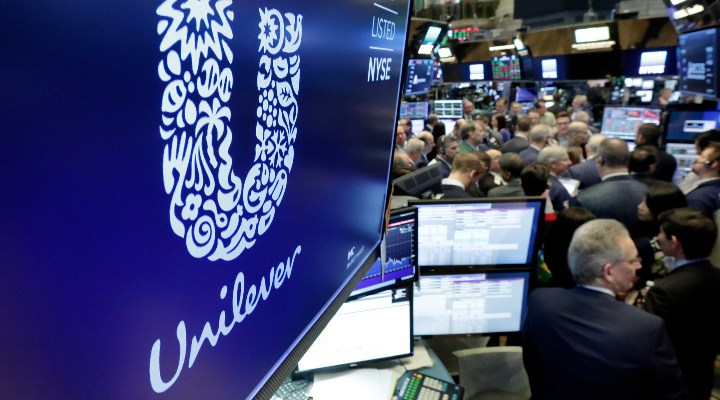
Terry Smith has kept busy this January. Together with head of research Julian Robins, the Fundsmith manager has launched several attacks on Unilever (ULVR), most recently criticising its failed bid to acquire GlaxoSmithKline’s (GSK) consumer arm.
In a letter to investors in the Fundsmith Equity Fund, which was seen by the FT, the pair criticise the consumer giant’s management, strategy, communication with shareholders and “penchant for corporate gobbledegook”.
Reportedly, the letter said Unilever’s several acquisition attempts were a “near-death experience” and that the two were thankful the deal had flopped (the fund is one of Unilever’s biggest shareholders).
The letter said:
“It seems to us that Unilever management’s response to its poor performance has been to utter meaningless platitudes to which it has now attempted to add major M&A activity. What could possibly go wrong?”
These comments come only weeks after he said the company had "lost the plot" by fixating on sustainability and green products instead of improving its financial performance.
For example, Smith does not think Hellmann’s mayonnaise needs to define its purpose – and the condiment brand has several times been called out for failed brand activism.
Smith then said:
“Unilever seems to be labouring under the weight of a management obsessed with publicly displaying sustainability credentials at the expense of focusing on the fundamentals of the business.”
The Morningstar Take
Unilever is a favourite among income investors because it has historically delivered solid dividends. But despite its dividends and recent share buybacks, the stock is down 20% over the last year and new chief executive Alan Jope remains under pressure to up performance.
After GSK announced that it had rejected the three Unilever offers, it rose nearly 5% in trading, while Unilever shed 6%. As we outlined in our analysis, this is straight out of the M&A playbook, where a target company rises on hopes someone will pay more for it, while the predator's shares fall as investors fret the company will overpay in a bidding war.
And while the Glaxo's share price jump suggests the market thinks there may be more to come from Unilever, Morningstar's director Philip Gorham disagrees.
“The offer already looks reasonable to us, and we think Unilever has little room to increase its offer without destroying shareholder value,” he says.
“We suspect the sell-off in the share price is at least in part related to concerns about increased financial leverage and possible earnings volatility that would be created by the debt issuance of upward of 50 billion euros required to finance the deal.”
But while the deal did not fall in Unilever’s favour, Morningstar believes criticism of the deal and Unilever's management understates the structural challenges that large cap consumer companies face.
In fact, price/mix has been anaemic in some food and home and personal care categories – Unilever's core business. As a result, organic growth has slowed.
Gorham says:
“Our view is that Unilever's wide economic moat comes from its leadership positions in a broad range of categories, across several aisles in the grocery store, not from the attractiveness of the categories themselves.
"As such, this aborted deal was an attempt to reposition Unilever's portfolio into structurally more advantaged categories [like consumer health or alcohol], and we think this is a sound long-term strategy.”
The ESG Take
So, what about Unilever's sustainability push. Is it more than just marketing?
According to Morningstar company Sustainalytics, Unilever is ranked eighth of 104 companies in the household products industry, and fifth of 79 in the personal products subindustry (where one is the highest).
It has an ESG Globes Rating of three of five because of its significant exposure to product quality and safety risk. The company continues to be involved in several controversies, notably on human rights and supply chain issues. Its reliance on palm oil is also linked to labour and human rights violations in several regions.
Meanwhile, Unilever continues to broaden its sustainable product offering under brands like Dove and Seventh Generation, while developing technologies to lower carbon footprint in the supporting communities in which it operates.
On a stratrgic level, Unilever says it has implemented its Unilever Sustainable Living Plan (USLP), a three-pillar sustainability strategy. Through USLP, the company claims to have to improved health and wellbeing for more than 1.3 billion people by 2020, reduced greenhouse gas emissions from its manufacturing by 65%, and achieved 100% renewable grid electricity across its sites.
Unilever continues to report its progress in an annual sustainablity report, and, despite controversies, Sustainalytics believes its management of material ESG issues is strong.




























